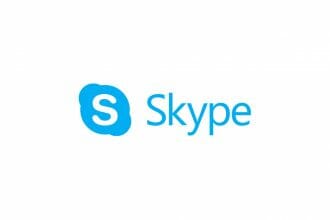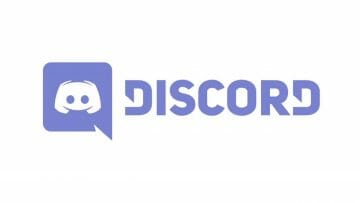
The personal communication between two people is slowly but surely overtaken by mobile messengers and social media. However, when it comes to business or team cooperation, desktop clients are far from being outdated. In fact, now that industries are more digitized and cooperative than ever, the necessity of constantly being in touch with your team members led to renovations in desktop communication.
We are here to walk you through the best available possibilities for instant PC messengers, provide a detailed overview of their features and take a closer look at the advantages and disadvantages.
Slack
Just recently, Slack has surpassed the record-breaking count of 10 million active users per day. The tool has become a recent sensation in desktop messaging and team collaboration. Slack has become an all-in-one collaboration platform for millions of business worldwide, and surely, there are plenty of compelling reasons for such popularity.
The first and foremost reason for Slack’s success is its clean and edgy interface. The tool is straightforward and very easy to manage. In a left side panel, you can see all channels. The area to the right serves as a background for your conversations.
Slackbots take care of maintaining channels in order, pushing the active channels higher, connecting links, sending notifications, and setting reminders. On top of that, Slack supports dozens of additional integrations – they can be found on the official website and user forums.
Slack’s simple interface makes work feel like a game. Unlike the majority of desktop messengers, this one creates a fun atmosphere, showing users with funny quotes on a starting screen, and allowing a fun system of reactions. This creates a deeper bond between team members, making cooperation much less robotic. It feels like a day in the office if only all offices were fun and playful.
Most importantly, the tool is completely free. The users never see ads or experience limitations of the number of added channels or users. Sure, there are paid subscriptions that provide richer functionality but those who opted for a free version, never feel limited.
Also, the tool is synchronized with Windows, Mac, Linux, iOS, and Android devices. If you don’t want to download a desktop version, you can use the same features in the web version.
Skype
We start right away with good news: the users of Windows 10 don’t even have to bother with the installation. Skype is already on your PC, just waiting to be accessed. If that’s not the case, simply install a Skype Free Download file. The tool was initially created as a desktop messenger, which means, its PC version is just as functional as a mobile one.
The only issue, however, is that the web version is limited – you can’t access the full message history. Most importantly, Skype for Web lately refuses to support Firefox.
Skype’s advantages are apparent. It’s a simple and widely spread messenger, used by more than a billion users all over the world. No matter whom you work with, chances are, that person is an active Skype user. Unlike Slack or Discord which have appeared on the market fairly recently, Skype already has a secure reputation.
Skype’s main features are:
- Instant text messages and group chats;
- Video and audio calls;
- Conference mode for group calls;
- Supports voicemail, phone calls, and SMS;
- Various status depending on the user’s activity.
However, it’s worth noting that phone calls and texts directly to mobile phones are paid services. The cost depends on the location of the sender and the receiver. Generally, the basic subscription states form $3 dollars per months – the users are billed whenever they use the feature.
Discord
Even though Discord is typically known as a solution for gamers, its scope far exceeds gaming. With its universal functionality, similar to Slack by purpose and interface, this messenger can be used by teams and business partners.
Of course, this tool is most appropriate to smaller, less formal teams. The simple functionality, powerful VoIP codecs, and a built-in Streamer mode make screen sharing easy and comfortable. It’s great for sharing tutorials with new team members, making presentations for clients, or collective brainstorming.
The software works on a server-based basis. After creating a profile, a user can join several servers and connect to them simultaneously. The application does not require a distinction between personal and work account – the balance is achieved by switching to different servers.
Once you’ve found or created the server, you can create sub-chats and groups. These channels can be divided by topics, team departments, and even defined by hashtags – as we said, the system is generally similar to Slack.
Unlike Skype, Discord only transmits audio and video when the user is directly interacting with chat members. Skype, on the other hand, transfers the data during the entire call, which slows the entire PC down. Also, the program has versions for Windows, Mac, Android, iOS, Linux as well as a web version, supported by Google Chrome, Mozilla Firefox, Microsoft Edge, and other popular browsers.
WhatsApp
Among all the tools that we reviewed, this one is definitely the best suited for one-on-one communication. However, keep in mind that the tool is designed mainly as a mobile application, hence the desktop and web versions are secondary in terms of functionality and interface.
A user’s account is directly connected to the phone number. Registration requires entering a number and receiving a confirmation code via SMS. When the confirmation is complete, the last step is to enter a name and last name, so other users can easily identify your account.
Even though the tool is tied to the mobile phone, it uses the online connection for texting and calling – you don’t have to pay. This makes WhatsApp a great option for cross-border cooperation. All you need is a stable Internet connection.
Last but not least, the tool has powerful end-to-end encryption. This means, even the tool’s developers are unable to decipher your public information or the contents of your dialogues. Also, WhatsApp has a unique possibility of transmitting status to all contacts. If you have important news to share, you can automatically send the photo to all your connections.
Conclusions
As you can see, the list of best messengers in 2019 includes newer tools like Slack and Discord, as well as more classical options – Skype and WhatsApp. Each of them serves similar purposes but differ by the approach.
Skype is best suited for official communications, and therefore, is used for talking to clients or partners. Slack is a great service for communication within the team. WhatsApp is the best option for personal one-on-one communication due to its convenient notification system and a robust chat. Discord is perfect for small startups and young teams who seek creativity and freedom even in communication services.

Founder Dinis Guarda
IntelligentHQ Your New Business Network.
IntelligentHQ is a Business network and an expert source for finance, capital markets and intelligence for thousands of global business professionals, startups, and companies.
We exist at the point of intersection between technology, social media, finance and innovation.
IntelligentHQ leverages innovation and scale of social digital technology, analytics, news, and distribution to create an unparalleled, full digital medium and social business networks spectrum.
IntelligentHQ is working hard, to become a trusted, and indispensable source of business news and analytics, within financial services and its associated supply chains and ecosystems

























